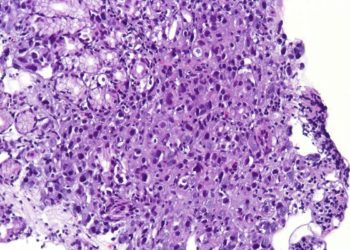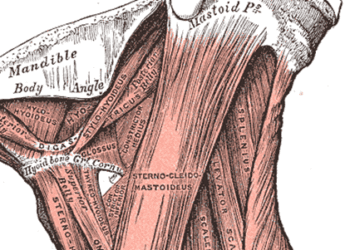Intravenous iron prior to abdominal surgery may reduce risk of readmission
1. Intravenous iron prior to major abdominal surgery in anemic patients was not associated with decreased need for blood transfusions post-operation.
2. Preoperative intravenous iron did reduce the risk of readmission to hospital due to postoperative complications in anemic patients.
Evidence Rating Level: 1 (Excellent)
Study Rundown: Preoperative anemia is a common condition affecting those undergoing major elective surgery that is associated with elevated intra- and postoperative complication risk. The most common cause is iron deficiency anemia due to a multifactorial combination of malnutrition, blood loss and chronic disease. Despite experts recommending to screen patients with significant expected blood loss for anemia, there exists little evidence about the effectiveness of intravenous iron preoperatively to reduce the risk of complications during and after surgery. This randomized, placebo-controlled trial (PREVENTT trial) was conducted to assess the effects of intravenous iron (1000 mg ferric carboxymaltose IV) 10-42 days before major abdominal surgery in anemic patients. Overall, patients transfused with iron preoperatively did not differ significantly from the placebo group in terms of postoperative complications, hospital stay, or mortality. However, at 8 weeks post-operation, readmission rates to hospital were significantly lower in the intravenous iron group, and hemoglobin concentrations were significantly higher. This study has several major strengths, including being one of the first to assess the effects of preoperative intravenous iron treatment in a methodologically rigorous manner. It also included anemic patients with a range of severities, several different organ systems, and diverse endpoints. Although iron deficiency was not an inclusion criterion for the study, a subgroup analysis of participants with iron deficiency yielded similar results as the overall study.
Click to read the study in The Lancet
Relevant Reading: International consensus statement on the peri-operative management of anaemia and iron deficiency.
In-Depth [randomized controlled trial]: This multicenter, double-blinded, randomized, placebo-controlled trial assessed the efficacy of preoperative intravenous iron in anemic patients administered 10-42 days before surgery. It recruited 487 participants, assigned to either the intravenous iron group (n=244) or the placebo group (n=243). The median age was 66 (IQR 54-72) and 45% were male. The major abdominal surgeries included gastrointestinal (34%), gynecological (30%), and colorectal (15%). The primary endpoints were risk of blood transfusion or death, and number of blood transfusions between randomization and 30 days post-operation. Secondary endpoints included total hospital stay length, readmission to hospital at 8 weeks and 6 months, and hemoglobin concentration between randomization and operation. Overall, there was no significant difference between groups regarding the need for blood transfusion or death up to 30 days post-operation (risk ratio [RR] 1.03, 95% CI 0.78-1.37; p=0.84); in addition, postoperative complications also occurred with similar rates between groups (RR 0.89, 95% CI 0.52-1.55). No difference was found in length of hospital stay, quality of life estimates or mortality rates. However, readmission rates to hospital up to 8 weeks post-operation were significantly lower in the intravenous iron group (RR 0.61, 95% CI 0.40-0.91), but only numerically lower at 6 months. Overall, this trial provides strong evidence regarding the lack of efficacy of preoperative intravenous iron in anemic patients undergoing major elective surgery. Similarly, while the authors mention that postoperative intravenous iron directly in hospital might be more practical, it is unlikely to differ in its effects significantly from preoperative iron, also putting its utility into question.
Image: PD
©2020 2 Minute Medicine, Inc. All rights reserved. No works may be reproduced without expressed written consent from 2 Minute Medicine, Inc. Inquire about licensing here. No article should be construed as medical advice and is not intended as such by the authors or by 2 Minute Medicine, Inc.









